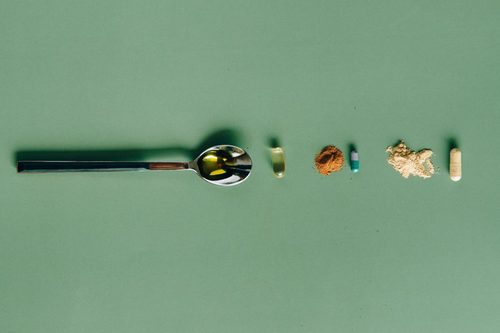Once you’ve hit menopause, the body starts to undergo significant hormonal changes, which can lead to a variety of symptoms, like hot flashes, night sweats, mood swings, and other health complications. While these symptoms can be challenging to manage, there are supplements that can help support your health during menopause.
Let’s have a look at the supplements you should be considering, and why:
Calcium
During menopause, women are at an increased risk of developing osteoporosis, a condition that weakens bones and makes them more susceptible to fractures.
To combat this, it’s essential to increase calcium intake to maintain bone health. Calcium supplements can be taken in combination with a healthy diet rich in calcium sources, such as dairy products, leafy greens, and nuts.
Vitamin D
Vitamin D plays an important role in calcium absorption and bone health.
It can be obtained from sunlight exposure, but it’s challenging to get enough vitamin D from the sun alone. Taking vitamin D supplements can help prevent bone loss and reduce the risk of osteoporosis.
Omega-3 Fatty Acids
Omega-3 fatty acids are known for their anti-inflammatory properties and have been shown to improve heart health, brain function, and joint health.
During menopause, women may experience joint pain and stiffness, which can be alleviated by taking omega-3 supplements. Additionally, omega-3s can help reduce the risk of heart disease, which is higher in postmenopausal women.
Black Cohosh
Black cohosh is a plant-based supplement that has been shown to help relieve hot flashes, night sweats, and mood swings. It works by mimicking the effects of estrogen in the body, which can help balance hormone levels and reduce menopause symptoms.
Soy Isoflavones
Soy isoflavones are plant compounds that have been shown to have estrogen-like effects in the body. They can help alleviate hot flashes and other menopause symptoms by balancing hormone levels. Soy isoflavones can be found in soy products such as tofu, soy milk, and edamame, or taken as a supplement.
Magnesium
Magnesium is an essential mineral that is involved in over 300 enzymatic reactions in the body. It can help reduce muscle cramps, improve sleep quality, and alleviate anxiety and depression.
During menopause, women may experience more significant stress and anxiety due to hormonal changes, and magnesium can help mitigate these symptoms.
Probiotics
Probiotics are live bacteria and yeasts that are beneficial for gut health. They can help improve digestion, boost the immune system, and alleviate vaginal dryness, which is a common symptom of menopause.
Taking probiotic supplements can help restore the balance of healthy bacteria in the gut and improve overall health and well-being.
As always, it’s essential to talk to your healthcare provider before starting any new supplement regimen to ensure it’s safe and effective for you.
ALSO SEE:
7 surprising symptoms that indicate you may be hitting perimenopause
Feature Image: Pexels

